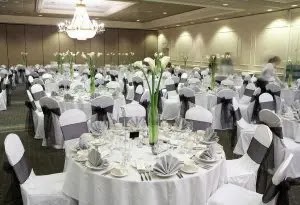An empty hall is probably the most disappointing part of hosting an event. Apart from the fact that you will probably lose money, your invited guests get to speak to empty chairs, and you might lose credibility with your sponsors! This can happen for both free and paid events. But for paid events, you might want to consider that your ticket pricing may have something to do with those empty seats.
So, here are some tips to help you determine the price of tickets for your event.
How do You Determine Pricing for Your Events?
1. Recognize that the event determines the ticket pricing
This might seem obvious, but it is way deeper than this. This goes beyond understanding the objectives of your organization but also the motivation of your intended audience. What is in demand at that particular time in that particular location? In a place like Nigeria with a high unemployment rate, a job search-related event might actually sell, but the organizers have to put in mind that the majority of your attendees will be unemployed, so might not be able to afford high ticket prices. Low ticket prices mean you will almost certainly get a full house and bigger revenue. But charging a low ticket price for an event for seasoned professionals might pass you and your organization off as non-credible and so might lead to low turnout. In summary, it is important to recognize how people view your event and this will determine how you price your tickets.
2. Have a Financial Objective
Unless you run a nonprofit organization, it is important to create a financial objective which is knowing how much revenue you hope to make from the event. This will help you build your budget as well as know how much to set for ticket prices. The normal process is to divide your total budget by the number of estimated attendees to get a price for each ticket. But there are other factors to consider that might give you additional revenue like sponsors and exhibitors so all the revenue burden doesn’t fall on the attendees. It is also important to note that your potential attendees are comparing your prices with similar events in your industry, so it is important to know your competition and their pricing.
3. Have Ticketing Options
This is common, especially in events that all classes of people enjoy like sports and entertainment. Football clubs have ticketing options so their fans in all steps of the economic ladder can buy. This is also common in music concerts and comedy events where there are tickets for the affluent and tickets for the ordinary man. Offering one ticket option can discourage a particular class of people and this can lead to the planner not getting maximum revenue. If it is priced too high, you might get few affluent people in your event and if it is priced too low, you might get lots of ordinary attendees but won’t be able to raise enough money to cover the cost as the affluent might not take your low-ticket event seriously.
4. Keep Data of Past Events
If you have hosted events before, it is important to juxtapose their financial successes. Compare data by calculating each event’s rate of return and then look closely at differences in ticket sales. Note the steps you took to that ensured maximum revenue in a particular event and this might help planning for your next event easier. Feedback from your attendees is also a way to plan ahead. Get personal information of your attendees and try to get their thoughts if the amount spent on the tickets was worth it. This can give you a clue on how to price your next event.
5. Monitor Your Ticket Sales
From the moment you start selling your tickets, it is important you monitor sales to know how you are performing. If you notice any discrepancies or notice sales are falling short of expectations, do not fret. Investigate what went wrong and act on it quickly. For instance, if the problem is affordability, you can offer a discount or a promo to raise demand. Monitoring sales will also help you collect data for future events.


